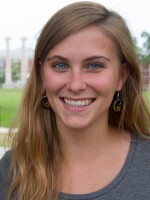This story is part of True/False Conversations, a series of in-depth interviews with the filmmakers of this year's True/False Film Fest.
French director Claire Simon is set to receive the True Vision Award at this year’s True/False festival. The award will honor Simon’s 30-year career and, along with her latest release Graduations, the festival will be showing a collection of the director’s work.
Amongst the collection is Simon’s breakthrough title, Récréations. The film, released in 1992, captures the joy, imagination and violence of a French playground and has regularly featured at film festivals ever since.
Jamie Braidwood spoke with Simon and asked why Récréations continues to receive critical acclaim.
Simon: It’s a film that is still shown every year in France and abroad because we are interested in the stories of childhood. This part of childhood is the part that you forget. So I think that maybe every one of us has a sort of relationship to that moment, as if it has the secrets of our lives.
Braidwood: How did you get the idea of the film?
Simon: I got the idea because I had my daughter who was very young at that time and I had filmed her with a friends of hers, on holiday. It was an incredible moment where they had let me watch their games and what there were telling to each other and I was not anymore the mother but I was just an observer and it was very funny and very beautiful and also very violent. And then I took her to the Kindergarten. When I saw the playground and all these kids, I thought, 'Oh, if she can manage this then she can do anything in life’. I mean, she can cope with anything after that and I watched these small scenes when I was taking her to school and there were so beautiful. It was all there, I just had to film it.
Braidwood: We see the playground as a place of imagination and fun in the film, but we also repeatedly see that it's a very violent place. Does this shock you at all?
Simon: It’s life. It’s the only place where the children are free because usually they have teachers, parents, grown ups that are looking after them all the time. Here, the grown ups are just on the edge of the playground but they’re not in the middle so they feel that it’s like real life.
Braidwood: What was it like filming in the playground? Do you find that children's behavior changes when there's a camera there?
Simon: The big question was, was I a teacher, was I the police, was I an adult who would represent the law and I said I was not. I said I was a filmmaker and I'm an old child and I'm filming how you play and I'm not a teacher, so if you want to claim anything, if you think something is wrong you have to go to the teacher and not to me. So they tested that a few times, to see if I was going to say or to be a teacher, and they realized that I was not going to interfere.
Braidwood: Are you looking forward to coming to Columbia?
Simon: Yes! I'm very curious about this festival.


